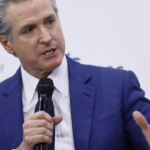What should feel like a bright, new beginning for early talent entering the job market is instead feeling pretty bleak.
Take Aspen Bailey, for example. Aspen graduated in 2024 with two bachelor degrees: a B.S. in Data Science and a B.A. in Psychology. Over the course of two years, she submitted more than 1,400 job applications, out of which approximately 50 employers reached out to move forward with an interview. That’s less than 1%.
“I felt very defeated when I was denied roles that I had high hopes for, especially the ones where I would make it to the final round,” Aspen told me. “Overall, the job search process has felt like the Call of Duty: Warzone video game. This process breaks you down emotionally, mentally, and physically.”
There’s not one factor to blame, but a combination working against Gen Z.
The reality is there is a generation of young people who are struggling as they navigate a broken workforce system. Fortunately, that also presents us with an opportunity; we can help better prepare the next generation for the workforce, or we can all suffer the economic and societal consequences.
Instead of harping on the skills employers think Gen Z is lacking, our only option is to do something about it. Afterall, if new grads are underprepared to enter the workforce, that’s not their fault– that is a systemic issue.
The question isn’t whether entry-level talent is equipped to thrive in the workforce—it’s who wins or loses if they aren’t. Employers stand the most to lose (if not now, then long-term), which is why they must lead the change.
“During my journey, I learned to expand my search as I had many transferable skills from my past work, volunteer work, and fellowship experiences,” Aspen said. “It’s really hard pulling yourself out of the gutter when every time you have hope, you get rejection after rejection, but there is definitely hope and light at the end of the tunnel– no path is ever linear. ”
We might not be able to fully predict how our economy will shift, or the impact AI will have on jobs. But there are things we can do that will make a difference – for the sake of this generation and the future economy.
The opinions expressed in Fortune.com commentary pieces are solely the views of their authors and do not necessarily reflect the opinions and beliefs of Fortune.









